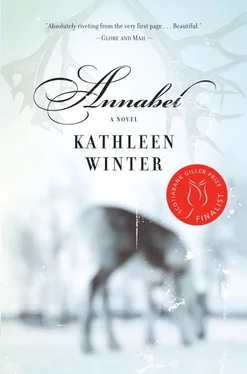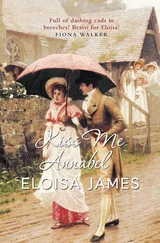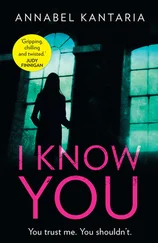Thomasina asked him specific questions about what Derek Warford had done and he answered them directly. He was telling her all this, he said, not because he wanted to upset her but because she had asked, and because she was the only person he could think of who might know what to do. He was sorry for telling her about it, and he apologized.
“And I’m sorry for telling you,” Thomasina told Treadway. “But I didn’t know what else to do.”
She had not wanted to go into every detail, but Treadway had not permitted her to leave out anything. He was silent then, and she did not know what he could be thinking.
“I could go,” she said. “I told him I could be down there in three days. But I went for a walk in the bush and thought about it and I realized you should know about it. And maybe you want to go down instead of me. I didn’t want it to be like the other time.”
She meant the time that had led, when Wayne was in junior high, to her taking him to hospital. She did not know if she had interfered too much then, and she did not want to risk doing so again. She would go if Treadway would not. But if Treadway wanted to go and help his son, then she felt it was his place to do so and not hers.
In bed Treadway could not sleep. He could not tell Jacinta what had happened; he was alone with the images in his mind. The images came into his mind again and again and he could not make them go away, or change, or turn into other, less harrowing images. He kept seeing that van door opening and six young men invading the van and holding broken glass over his son’s face and humiliating him. In his mind, over and over again, Treadway saw the shadowy figure of one of them tearing the buttons of Wayne’s shirt and undoing his pants and seeing Wayne’s body underneath, the body of Treadway’s own daughter, or son, it did not matter. What mattered was that no one had been there to help Wayne. Treadway had not been there, and he was not there now.
He closed his eyes but the scene played out again and again and he could not stop it. Everyone was nameless in the scene, and Treadway could not see their faces. If he had a name or a face he could have held on to that. It would have been a piece of information he could have used to get a handle on the scene, to stop it, to say wait a minute, to pause the scene and perhaps change it. Treadway lay in bed and knew he would never be able to change that scene. He knew it had passed, and that the only thing he could do now was go to St. John’s and take time in his hands, time that had not yet irrevocably passed as the scene he now saw over and over again had passed.
There was future time, and Treadway could enter only that. It was all he could do, and he did not know what it would mean, but he had a few thoughts about what a father could do to someone who was on the loose and able to do this to his child, or to someone else’s child in the future. There would be no future for that person and his actions if Treadway Blake had anything to do with it. This was the only thought that could stop the scene from playing over again and again, the only thought that could break the pattern of the thing that his mind was playing over and over. It did not break the pattern entirely, but it made it jump. It made a father’s agony hesitate.
What mystified Treadway Blake about downtown streets in St. John’s was the dead ends. You could start down a street that began in a perfectly ordinary fashion, but then you met stairs, and the stairs led into what looked like a lane between back gardens, and before you knew it you had come into an enclosure surrounded by tall fences, and you were met by the headlamps of a black car on a grassy mound, and there was no way out but the way in which you had come. Then there was the strange way in which the houses, because they were all different — crimson, blue, purple with yellow trim, or brown with a window box of geraniums — began after a while to look the same as each other, so that you did not know whether you had encountered a new box of geraniums or travelled in a circle to meet the same one twice. The togetherness of the houses, the way they were so much more densely crowded than any house in Labrador, made him feel the houses were crowding him. It was as if they had shoulders and eyes and were closing in on him, so that he felt St. John’s had swallowed him and he was lost in its guts, and the guts were the streets that twined around and through each other exactly like the intestines of moose and caribou he had hunted and cleaned, except that here in downtown St. John’s, Treadway was no great hunter. He was not even able to find his own son, whose address he carried written on the inside cover of the bank book in his pocket. He kept taking the bank book out and looking at the address anew, but it did not help him find Forest Road. Why, Treadway wondered, had they called it Forest Road when there was no forest in sight? If there had been even the vestige of a forest, Treadway might have known what to do. But there were only the lurid houses on their interlocking tangle of avenues.
He looked at the bank book repeatedly, then stuffed it away again, afraid of losing it. In it was a figure that both pleased and disappointed him. It was the total amount of money that the Labrador Credit Union in Goose Bay had agreed to trade him for his gold. The figure pleased him because it was a lot higher than the amount he had originally paid for the gold, but it disappointed him because he knew that now, converted into money, that figure would no longer increase.
The word was liquidation . Treadway had liquidated the gold, and now it would get smaller, because you spent money, you did not save it. The regret he felt was not on his own behalf.
Treadway was going to give the bank book, and the money it represented, to his son. He regretted only that the figure could not grow and that its power was uncertain: when it was spent, his son might be in a position to make a good living in this world, but he might not. Treadway regretted that he could not see into the future and know for certain whether giving this money to Wayne would be fruitful or not. Fruitfulness might be an old-fashioned concept, Treadway thought. It might be something he had read in his hunting cabin in the books of Genesis and Matthew. It might be something the land and the animals of a place like Labrador understood while a city like St. John’s might not. Fruitfulness was a thing that came from seeds and plants and animal life. It was a thing that happened naturally in the wilderness. But it might be forgotten here, in this place where his son now lived. Selling the gold and turning it into money was not fruitfulness, and Treadway knew this, and was aware, on this day in which he was lost in the city, that mere gold could be like many of these streets. It could be a dead end, when what his son really needed was life.
“Dad? Are you near the Fountain Spray?” Wayne had heard someone shout about the Fountain Spray in the background noise. The Fountain Spray was a shop on Military Road, near Bannerman Park.
“I don’t know, son. I’m across the road from a grey and white church.”
“Is it St. Thomas’s Church?”
“I can’t see from here. I’m in a phone booth and there are five roads going in all different directions.”
“Dad, can you see the Newfoundland Hotel?”
“There is a pretty big hotel to my right.”
“It sounds like you’re at the traffic circle on King’s Bridge Road. Can you see any street signs? Can you see Military Road or Ordnance Street?”
“I can’t see the signs from here, but yes, I just walked along Military Road.”
“Okay, stay there and I’ll meet you.”
“Just give me directions, son.”
“It’s okay, Dad. It’s not far, and it’s confusing. I was confused myself by that intersection when I first got here. It would confuse anyone.”
Читать дальше












